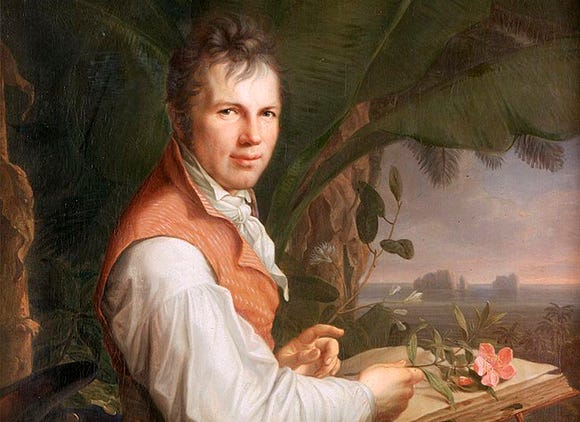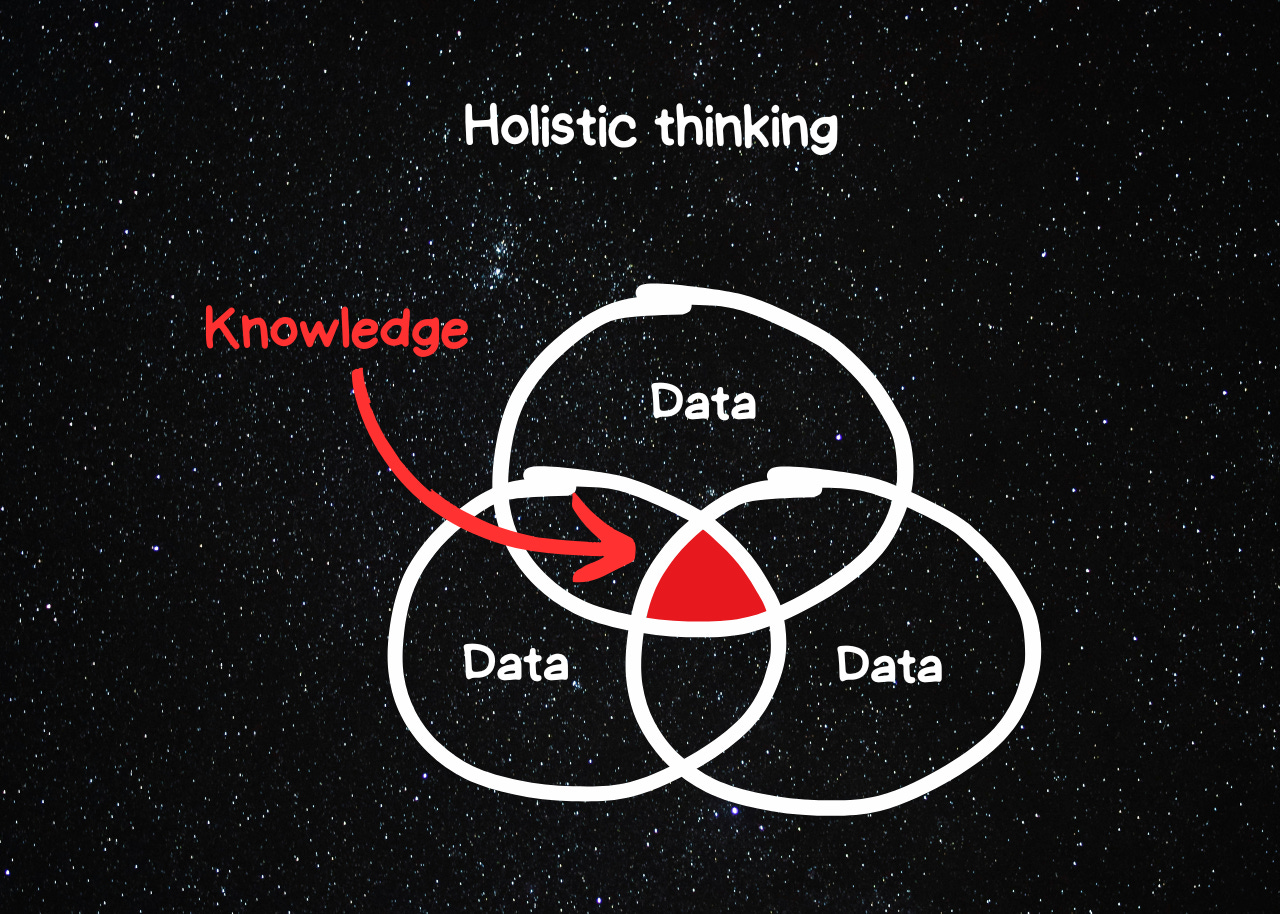Think as a whole: Understanding the world through its connections.
The inspirational story of polymath Alexander von Humboldt
🏷️ Categories: History, Geography, Mental models, Personal stories
This letter is dedicated to a teacher who changed the way I see the world.
There are no words to thank you for everything I learned from you.
I distinctly remember the first time I heard his name in the classroom.
Alexander von Humboldt.
I remember my first year of university with nostalgia and gratitude. I studied geography, as you older people may know. One of my first professors, a woman whose passion for what she taught was almost contagious, talked endlessly about Humboldt. At first, I didn't understand why she mentioned him so much, but with each new subject, with each book I opened, he would reappear. You couldn't study nature without running into him. Humboldt was a polymath who contributed to geography, geology, astronomy, physics, zoology, botany... an almost endless list.
Humboldt was ahead of his time and his mentality made him stand out.
His way of looking at nature has marked the present.
But what mentality did Humboldt apply when studying nature? And more importantly, how can we apply his way of seeing the world in our lives?
Nothing is isolated
Humboldt grew up in an age when science was rigid, nature mechanical and man a distant spectator. But he saw things differently. As my teacher would say when talking about him, “you must know that nature is holistic: the whole is more than the sum of its parts”.
An eagle is not just a bird, it is that and all the relationships it forms in the environment.
A forest is not just a group of trees, it is the whole ecosystem it has created.
A river is not just a flow of water, it is a flow of water and all that it produces.
If nature was a web of life, you can't just look at it as a botanist, geologist or zoologist. To understand one part, you need to know the rest of the parts.
His Essay on the Geography of Plants changed the mindset of the time. Instead of looking only at the plant, Humboldt looked at the relationships that plant had with the climate and geology of the place. He observed the plants in their context and did not dedicate himself to classifying them genetically. He gave the world a new way of looking at nature and harshly criticized those who put humans above nature (Wulf, 2015). We are all part of nature and dependent on it.
Does this idea sound familiar?
Now, more than ever, we need his way of thinking to take care of the planet.
Move from memorizing data to understanding the world.
The ability to connect seemingly unconnected dots and create relationships is crucial to producing creative ideas and innovative solutions. Instead of dividing what you learn in areas like history, biology or literature, think about their connections.
The Industrial Revolution was not only an economic change, but it also changed social structures, labor, and the urban way of life.
Rivers such as the Tigris, Euphrates or Nile are just rivers, they allowed the existence of ancient civilizations, which marked the history of mankind.
The arrival to the Moon was not only a technological advance, this fact inspired science fiction, influencing the literature and collective imagination of the time.
Everything is interrelated and it is in the relationships that you understand the whole.
Doesn't it remind you of the Zettelkasten method?
Think holistically
There are people who leave their mark on you. My teacher is one of those people.
Her lessons didn't stay in the classroom, they are part of my life. Today, when I sit down to write, I am telling you more than a story in the form of a letter. I want to share with you all those scattered ideas that I have been collecting along the way and that have been slowly taking shape, those ideas that have made me stop, think, feel. It is a personal recipe, a mixture of what I learned from other people and what I have lived.
I think it is very nourishing to walk through life thinking in this way.
Approach this way to the reading you do in the afternoons under your warm blanket, to the conversations with friends, to the visits to museums, to every corner you discover. Explore calmly, stay with what touches you inside, and then see how those lessons, those little pieces, can come together and make sense of your view of the world.
Reality is more than the sum of many facts.
✍️ Your turn: How could you apply a more holistic vision in your daily life? Is there anything you have learned that has made you see the world differently? I believe that from every encounter, reading and experience we can extract value.
💭 Quote of the day: “Our imagination is only impressed by the great; but he who loves nature should reflect equally on small things.” Alexander von Humboldt.
See you next time! 👋
References 📚
Von Humboldt, A. Essay on the Geography of Plants.
Wulf, A. (2015). The Invention of Nature: Alexander Von Humboldt’s New World. Knopf.







Excellent points here, thank you.